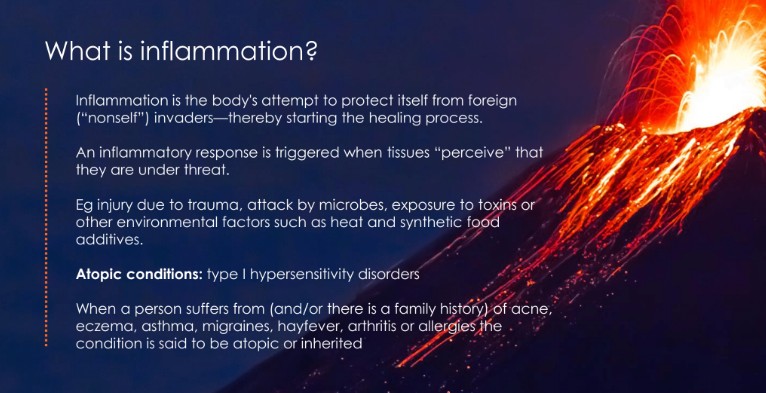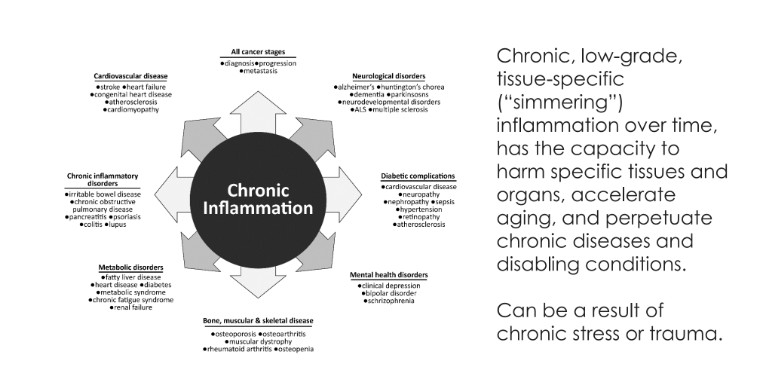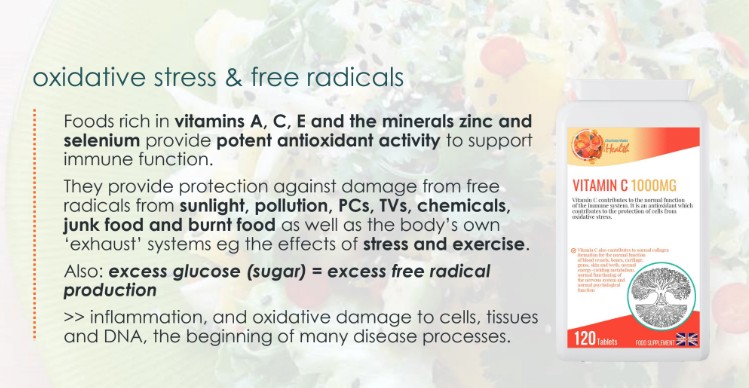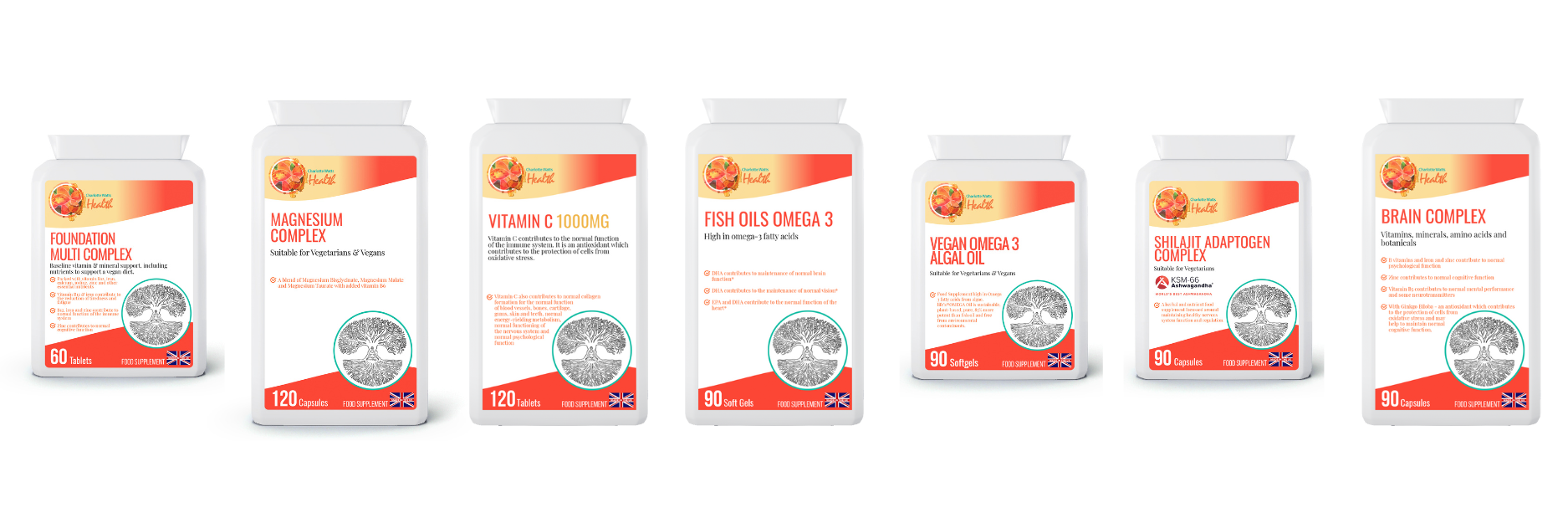Inflammation & Atopic Conditions
Sep 26, 2025After 50 Whole Health webinars and so much information gathered, it feels timely to bring together some key insights. This week, we turn to inflammation and atopic conditions. All of the things we’ve covered before feed into this theme.
We know inflammation is at the root of most chronic and degenerative conditions, which modern humans tend to develop as we live longer. It is also linked to stress, psychosocial stress, and sugar. These factors continually feed the inflammatory load.
The Body’s Inflammatory Response
Inflammation is the body’s attempt to protect itself from foreign invaders and to seal wounds, starting healing processes. Ideally, once the purpose has passed, the body calms down and inflammation resolves.
But with chronic stress or trauma, inflammatory responses remain switched on. This is part of the problem behind chronic degenerative disease.
Injury from trauma, microbial attack, pathogenic bacteria, toxins, synthetic food additives, heat, or other environmental factors all prompt inflammation. When this response stays switched on, it can become stuck. This is also often part of the pattern in atopic conditions.
“Atopic” means familial or inherited, often described as type one immune response patterns. These can set the stage for inappropriate or exaggerated immune activity.

Chronic Low-Grade Inflammation
For those with atopic conditions, stool testing can help uncover inflammation that is stuck beyond its purpose and linked to psychosocial stress.
Chronic, low-grade, tissue-specific “simmering heat” inflammation builds over time. It may not be visible on the outside but is strongly linked to premature aging.
We may carry a genetic predisposition toward inflammation, but that doesn’t mean it has to be expressed. These tendencies can be intercepted with the right support.
Unlike acute inflammation, with its classic signs of redness, swelling, heat, pain, and soreness, chronic systemic inflammation often goes unnoticed. It is tolerated or acclimatised to, even though it simmers beneath the surface.
This type of tissue-specific inflammation is classically seen in atopic conditions such as arthritis, eczema, psoriasis, hay fever, or migraines. Pain often accompanies this pattern - a form of communication, signalling that something is wrong.

Free Radicals and Oxidative Stress
Free radicals are unstable molecules created inside the body through natural respiration and energy production. Exercise always creates free radicals, much like exhaust fumes from running a machine. Stress accelerates this process by increasing respiration.
These unstable molecules - often oxygen-based - damage tissues, cells, and DNA. They are also generated by sunlight, pollution, electromagnetic frequencies, chemicals, and junk food.
Plant-based antioxidants help neutralise free radicals. These are found in the rainbow of plant colours - greens, yellows, reds, and carotenoids. Herbs, spices, green tea, herbal teas, dark chocolate, and cruciferous vegetables also provide powerful antioxidant support.
Excess glucose or sugar further drives free radical formation, adding to the oxidative burden.

The Role of Antioxidants
Modern supermarket produce often contains very little vitamin C. To maximise antioxidant activity, choose fresh, local, and organic fruit and vegetables wherever possible.
Supplementing with vitamin C can be particularly important for those under stress, who exercise regularly, or who live in polluted environments.
This blog is taken from Chapter 5 of my Nine Foundations of Whole Health Natural Health Webinar, which is available to Whole Health Members.
Discover Whole Health with Charlotte here featuring access to yoga classes, meditations, natural health webinars, a recipe database, supplement discounts and more... you can use the code WH100 to try a month for free, then choose from several pricing options to suit you and cancel anytime you need.
These are the supplements featured in the whole webinar from the Charlotte Watts Health range at the shop site. Click on each nutrient to see it there. Whole Health members receive a 20% discount on all products within the shop. See details on joining Whole Health and everything that includes here.





